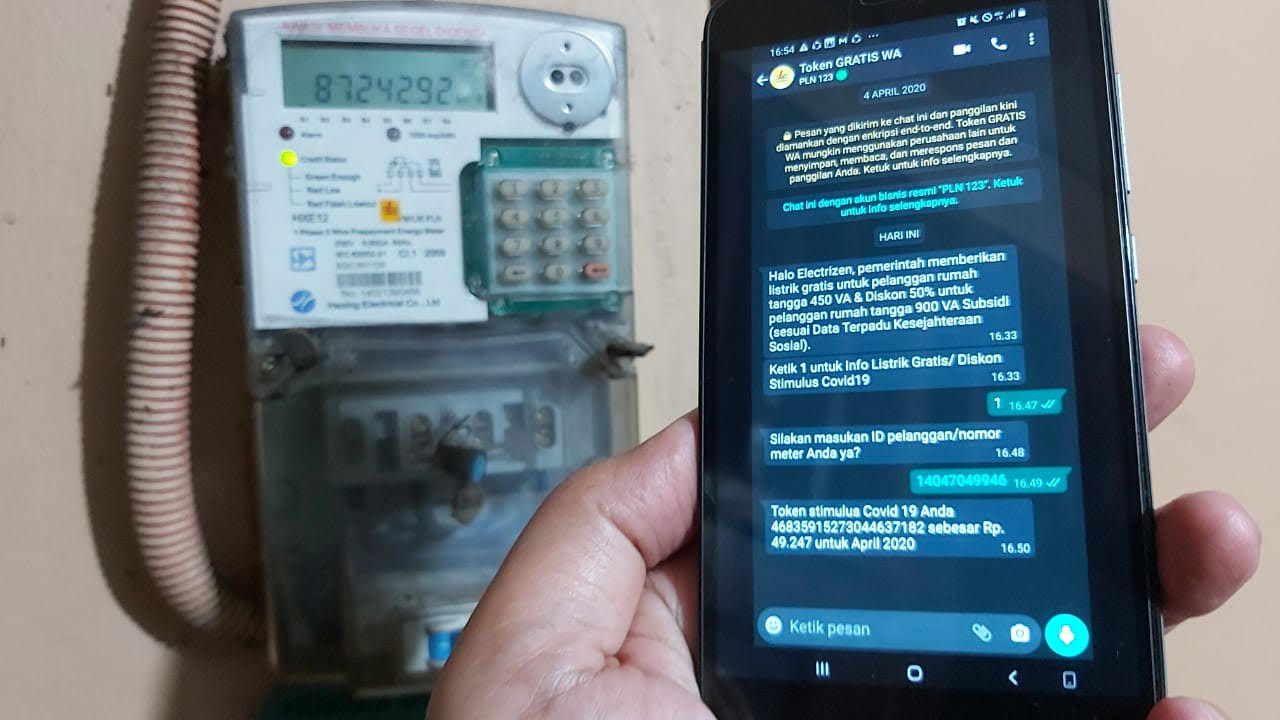Popular Reads
Top Results
Can't find what you're looking for?
View all search resultsPopular Reads
Top Results
Can't find what you're looking for?
View all search resultsOver a million low-income households left out of electricity relief scheme
Over a million Indonesian families living in internet dead zones have been unable to access a government-funded electricity relief scheme being distributed online.
Change text size
Gift Premium Articles
to Anyone
O
ver a million Indonesian families living in internet dead zones have been unable to access a government-funded electricity relief scheme being distributed online.
An Energy and Mineral Resources Ministry official said on Tuesday that as many as 1.2 million families lived in regions with poor connectivity and thus were unable to access both the WhatsApp account and the website of state-owned electricity company PLN, which is distributing the electricity.
These households, most of which are prepaid customers of PLN, are eligible for an electricity subsidy as part of the government’s relief program for residents affected by COVID-19.
The subsidy comes in the form of electricity token codes for household electricity meters.
“So PLN’s local branches will have to communicate more intensively with village, subdistrict and district officials,” said the ministry’s electricity business development director, Hendra Iswahyudi.
PLN kicked off the three-month relief scheme on April 1 to help 31 million of Indonesia’s poorest households to weather the economic shocks of the pandemic. For Indonesia’s bottom 30 percent, electricity is the third-highest non-food expense.
The Rp 3.5 trillion (US$223.5 million) relief scheme subsidizes electricity for 11.82 million prepaid PLN customers whose power consumption falls within the 450 volt ampere (VA) and 900 VA categories, the two lowest tiers out of six such categories under prevailing regulations.
The electricity relief scheme is also being given to 19.3 million postpaid PLN customers from both the 450 VA and 900 VA categories.
These customers are already eligible for government-subsidized electricity but the emergency relief further slashes their bills to 50 percent for 900 VA customers and 100 percent for 450 VA customers.
PLN said in a statement on April 9 that all the prepaid tokens were “uploaded” and thus “all prepaid customers may enjoy the free tokens from the government”. The company did not explicitly state whether all tokens were distributed.
Of the 1.2 million families living in remote areas, around 400,000 of them are located in the highly impoverished Maluku, Papua and Nusa Tenggara islands, all of which fall within the jurisdiction of PLN regional director Ahmad Rofik.
Ahmad told The Jakarta Post that PLN would deploy its local service unit (ULP) offices, which had better internet connectivity, to print the token codes. Offices would then coordinate with subdistrict and village heads to distribute the codes to eligible families.
“A region has to have some locations with internet connectivity. And the locals will know where they are,” he said.
Ahmad noted that distributing postpaid discounts was easier. PLN needed to only deduct electricity bills before customers paid for them through the usual channels, such as ATMs and PLN offices.
Energy analyst Fabby Tumiwa of the Institute for Essential Services Reform (IESR) commended the government for the electricity discount scheme, saying that it was important “to address the decline in household buying power and income” amid the pandemic.
However, the scheme also “had potential to be off target” as many urban informal workers who live in rented homes above the unsubsidized 900 VA category will not receive any electricity subsidies even though the pandemic has affected their income.
“The short-term solution is for the government to quickly identify these vulnerable groups and prepare supporting instruments, aside from electricity subsidies,” he said.










